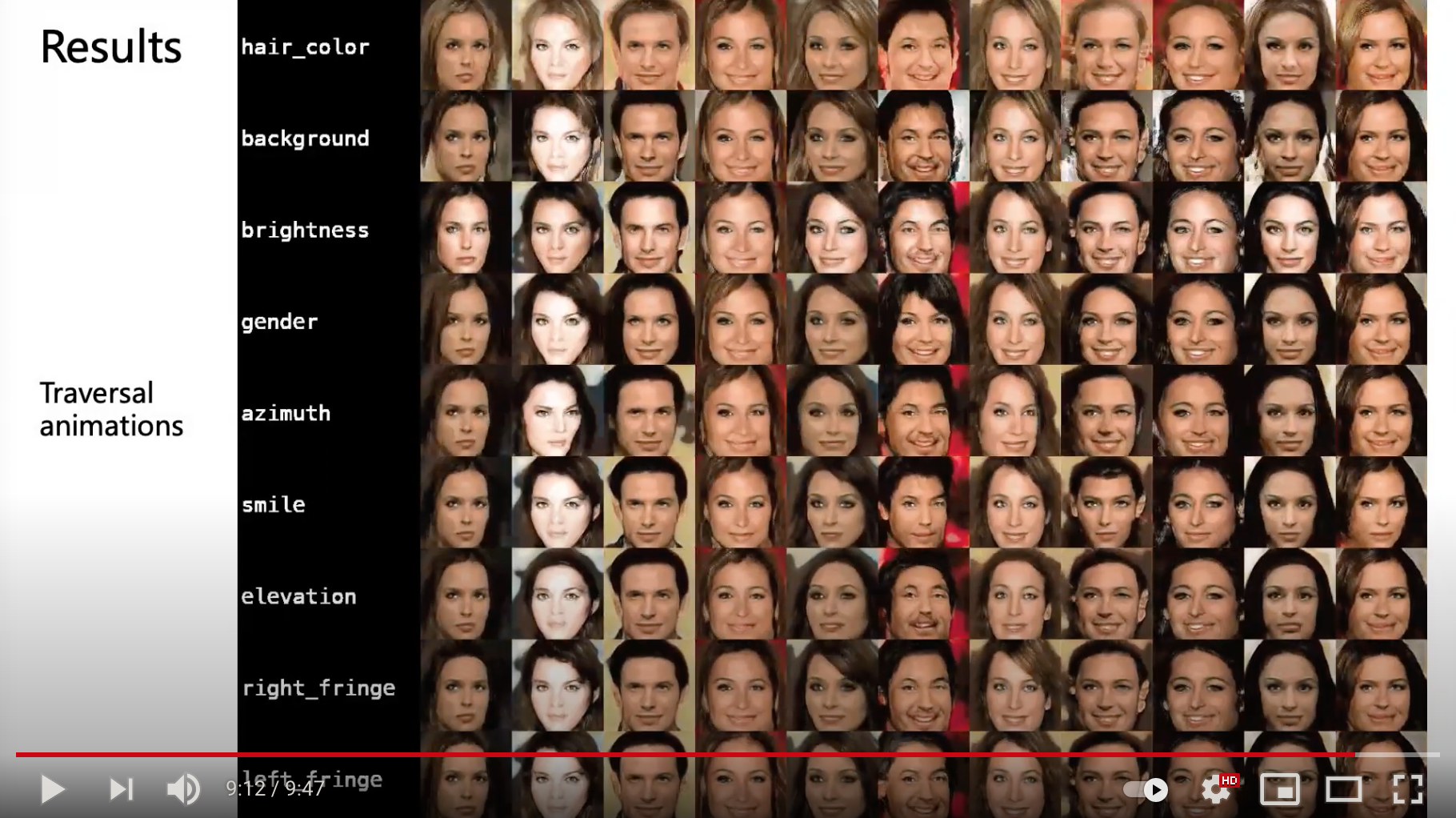Learning Disentangled Representations with Latent Variation Predictability
By Xinqi Zhu, Chang Xu, Dacheng TaoPublished in European Conference on Computer Vision, 2020
Abstract
Latent traversal is a popular approach to visualize the disentangled latent representations. Given a bunch of variations in a single unit of the latent representation, it is expected that there is a change in a single factor of variation of the data while others are fixed. However, this impressive experimental observation is rarely explicitly encoded in the objective function of learning disentangled representations. This paper defines the variation predictability of latent disentangled representations. Given image pairs generated by latent codes varying in a single dimension, this varied dimension could be closely correlated with these image pairs if the representation is well disentangled. Within an adversarial generation process, we encourage variation predictability by maximizing the mutual information between latent variations and corresponding image pairs. We further develop an evaluation metric that does not rely on the ground-truth generative factors to measure the disentanglement of latent representations. The proposed variation predictability is a general constraint that is applicable to the VAE and GAN frameworks for boosting disentanglement of latent representations. Experiments show that the proposed variation predictability correlates well with existing ground-truth-required metrics and the proposed algorithm is effective for disentanglement learning.
Model Architecture

Video Presentation
Links
Citation
@inproceedings{VPdis_eccv20,
author={Xinqi Zhu and Chang Xu and Dacheng Tao},
title={Learning Disentangled Representations with Latent Variation Predictability},
booktitle={ECCV},
year={2020}
}
